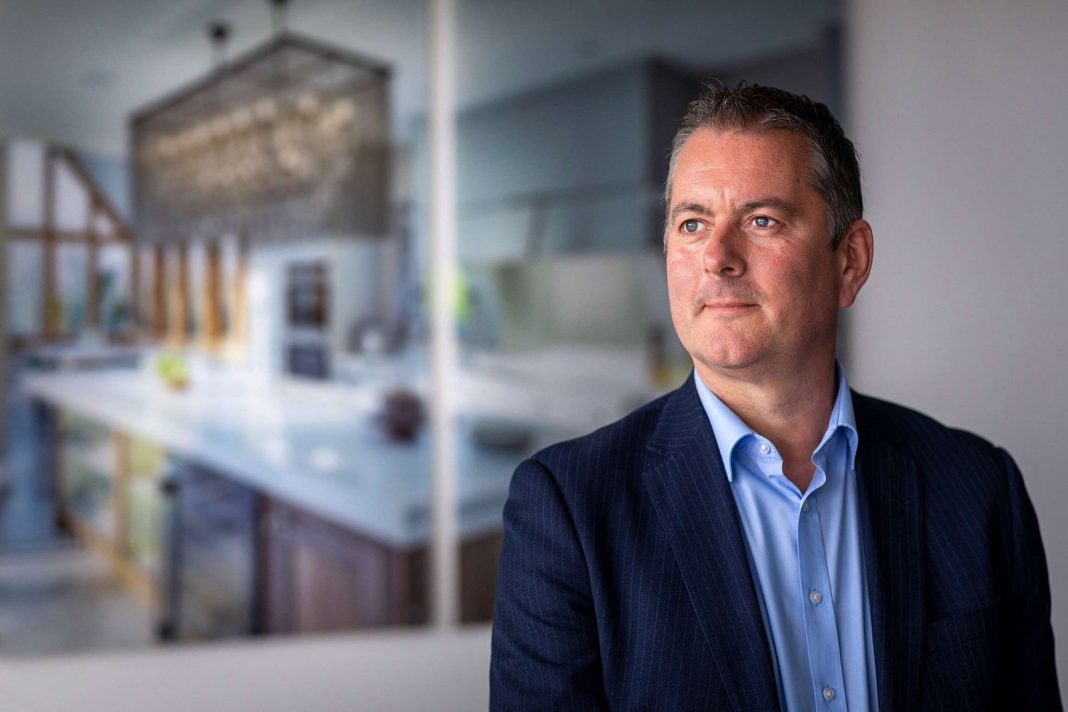You Say from, Neil Evans, Managing Director, VEKA plc
Uncertainty has become a feature of modern business, and the latest swirl of global developments, political turbulence and domestic policy changes have brought a fresh wave of insecurity. In the fenestration industry, we are particularly exposed to shifts in consumer confidence, inflationary pressures and the rising costs of doing ever more complex business. With trade tariffs, volatility in global markets and talk of a UK recession dominating headlines, it’s easy to see why many are feeling unsettled.
But, as with everything, context matters.
Let’s start with tariffs. While the recent noise coming from the US has rattled global markets, its direct impact on PVCu in UK fenestration should be minimal. VEKA plc, for instance, operates domestically and isn’t reliant on importing from or exporting to the US. We are in a stable position and have a strong presence in the market. Our message to customers is simple: VEKA is dependable, focused and will continue to be here with you for the long haul.
That doesn’t mean we can be complacent, but it does allow us to focus on what’s within our control. In fact, if Europe becomes less inclined to trade with the US and finds a more favourable route through the UK, it could present opportunities, particularly around material availability and pricing.
With President Trump announcing that he would be suspending these new higher tariffs for most countries for 90 days – almost as soon as I put pen to paper on these thoughts in fact – what we can be sure of is that we can’t predict how the next few months, let alone years will unfold.
Markets are reacting daily; pension values are fluctuating, and consumer confidence remains fragile. In April, many people, especially those nearing retirement – a key demographic for our product – woke up to suddenly find that their financial plans are worth five to 10 percent less than they were just a month ago. This is where the indirect impact of global changes will present a challenge.
We all know that this sector thrives on discretionary consumer spending. To homeowners, often, we’re selling lifestyle improvements rather than necessities. That means every decision to spend is tightly connected to how consumers feel about their future. Right now, they’re waiting and watching. With uncertainty about the economic outlook, job security and even the risk of potential tax increases in the upcoming Autumn Budget, decisions to upgrade homes with new doors and windows are being postponed – or dropped entirely.
Many homeowners will be holding onto cash even though, statistically, the UK holds more savings than ever post-pandemic. And as business leaders in fenestration, we must plan with that hesitation in mind. There are also plentiful opportunities in the commercial market, where national targets on new homes and upgrades to social housing are moving forward, albeit slowly.
Businesses are also grappling with the dual impact of increased employer National Insurance contributions and a hike in the national minimum wage, both landing in the same month, impacting operating costs and forcing tough decisions on future hiring.
At VEKA, we’ve learned not to panic. It would be easy to take a ‘wait and see’ approach to all of this, but if I could offer one piece of advice to businesses, it would be this: don’t stop investing.
The natural reaction during periods of economic uncertainty is to freeze, but the key is to be strategic. Make investment decisions that align with your core purpose. Be clear about what your business exists to do and ensure every penny spent supports that mission. However, remain pragmatic and don’t overextend financially, especially when there are signs of potential downturns.
Find and eliminate inefficiencies if you have not already. In our own operations, we’ve identified that some of what we do wasn’t adding value. So, we’re doubling down on reducing waste and ensuring our teams understand the ‘why’ behind every process and every project. That clarity and clear communication is, in my experience, what helps people embrace change and makes businesses stronger.
We can’t control President Trump. Or interest rates. Or the next Government Budget. But we can control how prepared we are and how we respond. If we focus on what we can control – our people, our efficiency, our communication and our strategic investment – we will continue to have a strong position in the market.












